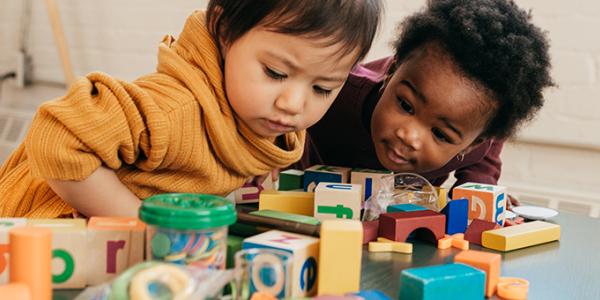Preschoolers Are Natural Mathematicians

You are here
Preschoolers aren’t yet ready to memorize multiplication tables, but that doesn’t mean they cannot learn and explore math concepts they will use when they move on to primary school. Try these ideas at home to help your preschooler explore math.
Offer containers filled with small treasures. Think of lids, buttons, shells, beads, pieces of ribbon, pinecones, acorns, and similar items as the tools of math learning. Preschoolers will naturally sort them by size, color, and shape; they will count and compare collections; and they will talk about what they are doing and why—especially if a grown-up joins in. I saw you examine each button before placing some of them in the blue bowl. What were you looking at?
Talk about math. Include math talk when cooking, playing at the park, and at bedtime. Our family has five people eating dinner. How many ears of corn should we shuck? How many times do you want me to push you in the swing? We can read three books together before turning out the light. You can choose three books from the shelf.
Measure things. Preschoolers enjoy using measuring tools, like rulers and tape measures, and creative items, like shoes and plastic chains. Ask questions that invite your child to measure something. How wide is your bed? How tall is our dog? How many shoes long is the carpet?
Build together. Make buildings from wooden blocks, Legos, a collection of recycled items, or shoe boxes with the tops taped shut. Try masking tape to hold the structures together. Talk about shapes, sizes, widths, and heights as you build. Then get out the tools and take some measurements. How did you make the building so high? How wide is the bottom of the structure?
Source: Adapted from the Message in a Backpack, Teaching Young Children 8 (1): 23